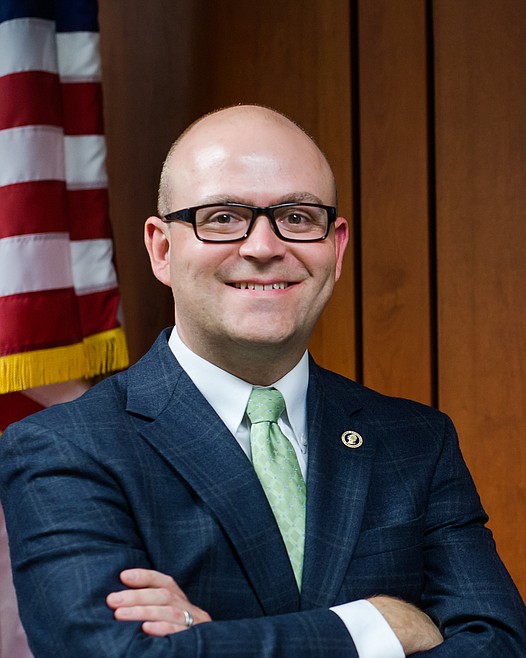Both helped weakened trust in electoral system, both must help restore it
This is a perilous moment of global instability. The very ideals of constitutional democracy that define America are at risk in every corner of the world. Amid such darkness, the United States is a beacon of hope for those who struggle under dictators and autocrats and yearn for peace, freedom, and self-determination. For democracy.
As Republican state election officials, we believe in the power of citizens to choose their leaders freely and fairly, and we have faith in the integrity of the election systems currently in place to carry out the voters’ will. Nationally, we saw a successful 2022 midterm election. Many states worked to shore up confidence in the election process, adding many new legal provisions that our states of Georgia, Idaho, Kansas, Kentucky, and Utah implemented beginning in 2020. These reforms included preprocessing of absentee ballots, additional audits, and ballot-tracking. The outcome was a high-turnout election with not a single serious candidate contesting the election results. The system held up to scrutiny and won.
There are reasons why some still distrust the system. The main one is the toxic stew of disinformation, misinformation, and deliberate lies for profit or political advantage. And as conservatives, we recognize the damage caused by the drumbeat of falsehoods repeated about the 2020 elections. Despite the fact that the 2022 elections were largely undisputed and noncontroversial, there are still many voters who don’t believe they can have confidence in the 2024 elections.
This is a bipartisan problem, though. Democrats have also sown doubt about high-profile election results in 2000, 2004, 2016, and 2018. While Republicans acknowledge our responsibility, it will take both parties to break the cycle and restore voter trust.
Repairing trust in voting takes effort at the local, state, and federal level. As the top election officers in our states, we have both a responsibility and a unique opportunity to lead these efforts. While a plurality may distrust national elections, Americans, by and large, continue to have confidence in their state and local governments and in local elections. The loud voices that doubted the results of the 2020 election have been virtually silent about the results of the 2022 elections. This is the result of specific actions and practices we undertook to restore public trust in elections.
We are calling on conservative leaders at all levels to join us in implementing proven strategies that have rebuilt trust in our elections by adhering to three main principles. As chief election officials, we have all attempted to abide by these ideals in our own states.
First, we commit to publicly affirming the security and integrity of elections in the United States. Despite the polarized public narrative about differences in how elections are run between red and blue jurisdictions, a core baseline of laws and practices is in place across the country. These include practices such as testing all voting machines to ensure they are secure, conducting audits of ballots after every election to confirm the accuracy of the results, and storing paper ballots in secure facilities to maintain a paper trail. The challenge is that too many Americans are not aware of these common security measures. Our experience shows that knowledge of them increases public confidence in election processes and results.
Second, we will continue to use transparency and public outreach to reassure voters that elections work. Again, research and our own experiences have proven that public education about the voting and vote-counting processes builds public confidence in election results. We plan to continue public education and transparency practices, such as site tours of election facilities and ensuring access for poll watchers. We also can use the fact that voters trust their local elections to build trust for federal elections. After all, the same trusted local officials are responsible for administering national elections. To reinforce these messages, we will seek cooperation from trusted local leaders such as law enforcement, veterans, faith leaders, and civic groups.
Third, in the spirit of continuous improvement of our elections, we will continue to champion policy changes that help build trust. While Americans should already feel confident that our elections are conducted securely and accurately, prudent updates to election laws help improve public trust in elections. To that end, we encourage other states to join our states in preprocessing and tracking mail-in ballots, requiring voter ID for all ballot types, and performing audits. These practices have led to faster, more accurate, and more secure results and increased public trust in the outcomes.
We recognize that the 2024 election will be contentious. We know that even adhering to these principles by the letter will not completely eradicate election distrust. But this is a moment, one year out from Election Day, in which election officials across the country must lead. We pledge to do everything we can to help build trust in the very foundation of democracy: the vote.
MICHAEL ADAMS
Kentucky Secretary of State
DEIRDRE HENDERSON
Utah Lieutenant Governor
PHIL McGRANE
BRAD RAFFENSPERGER
Georgia Secretary of State
SCOTT SCHWAB
Kansas Secretary of State
This opinion was originally published in the National Review on December 6, 2023.

